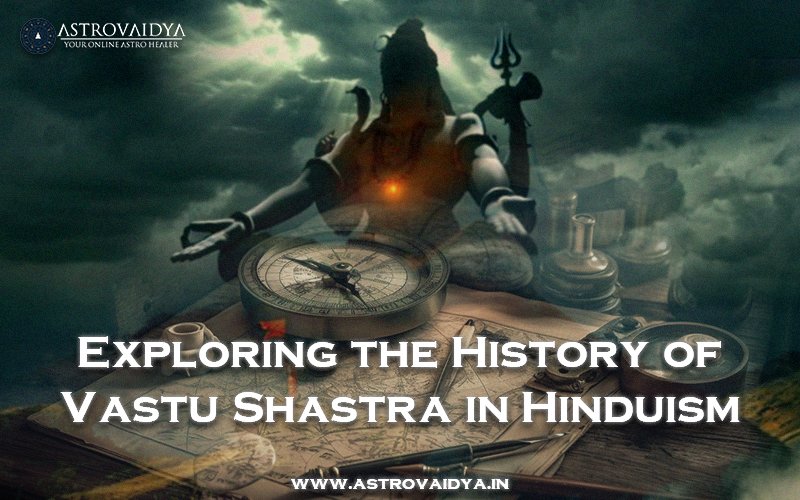Exploring the History of Vastu Shastra in Hinduism
Exploring the History of Vastu Shastra in Hinduism. As human beings, we are constantly seeking balance and harmony in our lives. We strive to create an environment that nurtures our well-being and enhances positive energy flow. This pursuit has led us to embrace various ancient sciences and practices, one of which is Vastu Shastra. Deeply rooted in Hinduism, Vastu Shastra offers profound insights into how architecture, design, and spatial arrangement can influence our physical, mental, and spiritual well-being.
Discover its origins within the intricate tapestry of Hindu belief systems and unravel the key principles that guide architectural marvels even today. Prepare to be amazed by its impact on daily life and business practices across India.
Beliefs of Vastu Shastra in Hinduism
Vastu Shastra, an ancient Indian science of architecture and design, has its roots deeply embedded in Hinduism. This sacred knowledge is believed to have originated thousands of years ago, with references found in the Vedas – the ancient scriptures of Hinduism. According to these texts, Vastu Shastra was revealed by Lord Brahma himself, the creator of the universe.
In Hindu belief, it is thought that every living being is surrounded by energy fields that can greatly influence their well-being. Vastu Shastra aims to harmonize and balance these energies within a physical space – be it a home or a workplace.
Central to this philosophy are the five elements – Earth (Bhumi), Water (Jal), Fire (Agni), Air (Vayu), and Space (Akash). These elements are believed to represent different aspects of life and are incorporated into architectural designs according to specific guidelines provided by Vastu Shastra.
Concepts of Vastu Shastra
The principles of Vastu Shastra revolve around creating harmony between humans and their environment by harnessing the natural energies present in the universe. One key principle of Vastu Shastra is the concept of five elements – earth, water, fire, air, and space. These elements are believed to govern different aspects of life and should be balanced within a space for optimal energy flow. For example, incorporating earth elements such as stone or clay in construction can promote stability and grounding.
Another important principle is directional alignment. Each direction has its significance in Vastu Shastra. For instance, the north represents prosperity while the east symbolizes health and spirituality. By aligning rooms or objects accordingly, it’s believed that positive energy can be enhanced.
The concept of ‘Vaastupurusha Mandala’ is also fundamental to Vastu Shastra. It visualizes a cosmic man lying with his head pointing towards the northeast – an auspicious direction according to this practice. The layout plan follows specific guidelines based on this mandala to ensure proper energy flow throughout the structure.

Impact of Vastu Shastra on Daily Life & Business
In terms of daily life, adhering to Vastu principles can enhance overall well-being. For instance, positioning your bedroom in the southwest direction is believed to promote restful sleep and strengthen relationships. Similarly, having a dedicated space for meditation or prayer in the northeast corner helps channel positive energy into your spiritual practices.
When it comes to business practices, Vastu plays a significant role as well. Many businesses consult Vastu experts before setting up their offices or commercial buildings. This is because an optimally designed workspace according to Vastu principles is said to improve productivity, attract prosperity, and foster harmonious relationships among employees.
Moreover, following Vastu guidelines for office interiors such as proper placement of desks and seating arrangements can help maintain focus and concentration while working. It also ensures that negative energies are minimized or eliminated from the workplace environment.
FAQs
- Is Vastu Shastra only applicable to Hindus?
No, Vastu Shastra is not limited to Hindus. While it originated from Hindu scriptures and is deeply rooted in Hindu culture, its principles can be applied by anyone regardless of their religious beliefs. The fundamental concepts of Vastu Shastra are based on the universal principles of energy flow and harmony, which can benefit people of all backgrounds.
- Can following Vastu Shastra bring positive changes in my life?
Yes, adhering to the principles of Vastu Shastra has been believed to bring about positive changes in one’s life. By aligning your living or working environment with the natural elements and energies, it is thought that you can enhance positivity, well-being, and prosperity in various aspects of your life – be it relationships, health, finances, or career.
- Are there specific tips for implementing Vastu Shastra at home?
Yes! Here are a few simple tips for implementing Vastu Shastra at home:
- Place the main entrance door facing east or north for good fortune.
- Ensure that each room receives adequate sunlight and ventilation.
- Keep your bedroom clutter-free and avoid placing mirrors opposite the bed.
- Position your kitchen in the southeast direction.
- Avoid placing sharp objects like knives or scissors under your bed.
- How does Vastu Shastra influence business practices?
Vastu Shastra also offers guidelines for setting up businesses or offices to optimize success and prosperity. It suggests ideal locations for certain types of businesses based on factors such as the nature of work and compatibility with surrounding elements. For example, a restaurant may benefit from being located towards the west where aromas will travel easily.
- What are some misconceptions about Vastu Shastra?
One common misconception about Vastu Shastra is that it is only for Hindus or those who follow a specific religion. In reality, Vastu Shastra is based on scientific principles and can be applied to any space regardless of one’s religious beliefs. Another misconception is that Vastu Shastra is only about interior design or the placement of objects in a room. While aesthetics plays a part, Vastu Shastra also focuses on energy flow and the balance of the five elements in a space. Lastly, some people believe that following Vastu principles means making drastic changes to their home or workplace, when in fact small adjustments and mindful placement can bring positive effects. It’s important to understand the true principles of Vastu Shastra rather than falling for these misconceptions.





